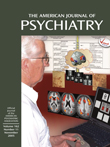Tardive Dystonia Associated With Ziprasidone
Ms. A, a 56-year-old woman, was seen with a chief complaint of involuntary jaw movements. She had a 35-year history of migraines for which she had received a number of treatments (triptans, beta-blockers and calcium channel blockers, antiepileptics, antidepressants, and clonazepam) with limited success. Her first trial with an atypical neuroleptic was 2.5 years before her presentation, when she was administered ziprasidone (80 mg/day). Ms. A experienced a moderate decrease in the frequency and severity of her migraine attacks. Eleven months later, she started noticing mild involuntary movements of her tongue, and ziprasidone was gradually discontinued. Within 2 weeks, involuntary movements involving jaw opening were superimposed on the involuntary movements of her tongue. Gradually, her symptoms intensified, causing eating difficulties accompanied by weight loss (5–6 kg). She also experienced occasional tongue and oral mucosa injuries. Her past medical history was remarkable only for a hysterectomy performed for an ovarian cyst.A neurological examination revealed frequent, sustained jaw opening, with occasional tongue protrusions and rare dystonic furrowing of her eyebrows. No other abnormalities were noted; brain magnetic resonance imaging was normal. Ms. A had already received botulinum toxin type A injections without success and declined repeat injections.
References
Information & Authors
Information
Published In
History
Authors
Metrics & Citations
Metrics
Citations
Export Citations
If you have the appropriate software installed, you can download article citation data to the citation manager of your choice. Simply select your manager software from the list below and click Download.
For more information or tips please see 'Downloading to a citation manager' in the Help menu.
View Options
View options
PDF/EPUB
View PDF/EPUBGet Access
Login options
Already a subscriber? Access your subscription through your login credentials or your institution for full access to this article.
Personal login Institutional Login Open Athens loginNot a subscriber?
PsychiatryOnline subscription options offer access to the DSM-5-TR® library, books, journals, CME, and patient resources. This all-in-one virtual library provides psychiatrists and mental health professionals with key resources for diagnosis, treatment, research, and professional development.
Need more help? PsychiatryOnline Customer Service may be reached by emailing [email protected] or by calling 800-368-5777 (in the U.S.) or 703-907-7322 (outside the U.S.).

